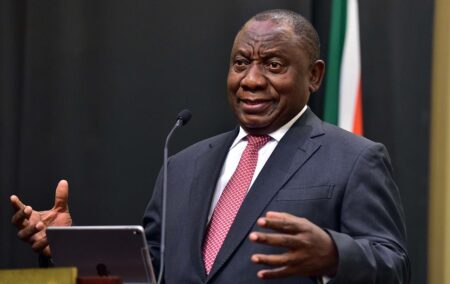It has been very disconcerting to hear big business representatives and some economists praising the government’s investment drive in radio interviews. They see ‘green shoots’ in South Africa’s economic scorched earth.
For reasons which include ideology and patronage, investment has been actively discouraged by the government, in deed if not in word.
The IRR has opposed deterrents to local and foreign investment ad nauseam, but has also repeatedly put forward policy options that would really grow the economy. If local pleas don’t help to convince government, maybe foreign ones will.
In an article in BusinessLIVE on 17 November, Raul De Luzenberger, the European Union Chargé d’Affaires, listed the obstacles to investing in South Africa for EU businesses.
De Luzenberger reminds us, and we need reminding, that the EU is South Africa’s largest investor (40% of total investment stock) and it is also our main trading partner (25% of SA’s overall trade flows).
He then highlights the significant bars to further investment by the EU, and echoes the concerns of NGOs and many economists.
BEE tops the list of impediments. De Luzenberger advises that only ‘policy recalibration’ will overcome firms’ concerns and allow them to contribute to economic transformation.
‘The ownership target is particularly problematic, as many EU enterprises are family-owned and therefore unable or unwilling to transfer shares to external parties.’ The insecurity that this induces requires a ‘recalibration’ of B-BBEE policy
The IRR has been implacably opposed to BEE for a number of reasons, including that it discourages investment. Together with cadre deployment, it is a spur to corruption, and often enriches a few who bring nothing to the table, thus benefiting only a handful of the politically connected.
The EU believes that the government should rather reward skills development and reduce the emphasis on ownership, ‘thus making SA significantly more attractive, particularly to foreign small, medium-sized and micro enterprises (SMMEs)’.
Internationally uncompetitive
The second prohibiting factor for the EU is public procurement, which has made local production internationally uncompetitive. De Luzenberger refers to the Draft Public Procurement Bill which sets out a single regulatory framework for all tiers of government and state-owned enterprises. It is silent on how B-BBEE – the preference point system and local content regulations – will be applied.
Meeting localisation requirements in the renewable energy sector is particularly difficult, because of the significant costs of establishing production facilities, the additional skills development requirements for renewable energy bids, and the unavailability of certain inputs, particularly for power producers.
Employment equity allows the labour minister to set and regulate sector-specific targets for companies with more than 50 employees and to require an ‘equity compliance certificate’ in order to access state contracts.
The penalty for non-compliance will be absolute. The labour minister has great discretion in defining an economic sector and setting targets. This is a significant risk for investors in government infrastructure and energy investment projects. Ramaphosa’s recovery plan is premised first and foremost on infrastructure development.
A further impediment is the lack of skills locally, due to the poor education system, labour legislation, and difficulties in obtaining visas and work permits for foreigners.
To ensure that SA’s investment drive meets its objectives, De Luzenberger says that the government must tackle ‘key obstacles to investment that dissuade and in effect prevent companies from contributing meaningfully to economic transformation’.
For most EU investors, the overlapping and cumulative requirements of these multiple and changing policy frameworks make investment or expansion decisions particularly complex and, in some cases, prohibitive.
Unambiguous admonition
This is a surprisingly clear and unambiguous admonition to government from a keen and supportive investment partner, and a plea to make real structural changes and not the ‘structural changes’ to which the president keeps referring.
Strengthening B-BBEE, implementing expropriation without compensation, nationalising the Reserve Bank, hindering communications development, threatening to appropriate retirement savings and so on are not what the EU – and certainly not the IRR – have in mind as the ‘structural changes’ the country needs.
If the government won’t even take heed of its major foreign investor, South Africa is going to go to the back of the queue in the competition for foreign investment.
Mr. President, if you won’t listen to your patriotic detractors, please listen to one of your closest friends.
If you like what you have just read, support the Daily Friend

